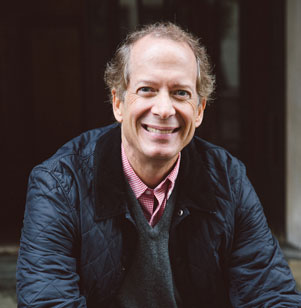A CU New York Virtual Forum featuring CEO & Founder Matt Bennett
In CU New York’s most recent forum, CEO and Founder of Christian Union, Matt Bennett presented a biblical view of fasting, speaking to its relevance and power throughout history and testifying to many powerful ways in which he has witnessed God moving in response to fasting. He offered practical examples of how Christians and church communities can apply fasting to their walks with the Lord.
Matt began his presentation by defining what fasting is – and what it is not. As Christians, we often take for granted that we understand fasting or overlook it altogether in our faith practices. However, fasting is a prominent theme throughout the Old and New Testaments.
The first component of fasting, an essential starting point to any fast, is to humble ourselves before God. Quoting Isaiah 66:2 “Humble yourselves under the mighty hand of God and he will uphold you,” in addition to several other references (including Psalm 147:6, Psalm 69:9-10, Ezra 8:21, and Isaiah 58:3), Matt emphasized the significance of humbling ourselves as we enter a fast.
Matt also notes that to grow with the Lord, deprivation is needed (Deuteronomy 8:3) and that continued self-satisfaction can be damaging to our faith walks. 2 Cor 1:9 teaches us that physical affliction increases our awareness of our dependence on God. Matt reminds us that although we are not encouraged to seek persecution, we should seek deprivation through fasting (especially amongst Christians in the West) to remind ourselves of our reliance on our Heavenly Father.
Fasting by definition means to go without food (in this case for a spiritual purpose). Fasting does not mean “to refrain” as it is culturally often equated with. A fast is also not a diet or selective eating. In this presentation, Matt illustrated two key categories of fasting: regular fasting and breakthrough fasting. Regular fasting is incorporated into a regular routine or schedule, as a spiritual discipline, similar to how we incorporate devotion/prayer time, serving our communities, tithing, and attending church services. As is referenced in the Didache (c. 75AD) chapter 8, 1st-century Christians regularly fasted on Wednesdays and Fridays, typically until 3pm. This is also how Matt has incorporated regular fasting into his own faith walk.
Breakthrough fasting, which occurs throughout the Bible (Ezra, Esther, Paul, King David, Daniel Jesus, Elijah, and Moses all fasted in this way) can range from 3 days to 120 days. Longer fasts typically include one meal a day. Breakthrough fasts are often rooted in periods of lamentation, questioning, petitioning, etc in which we are imploring the Lord. Biblically those fasting in this way, are often described as lying prostrate on the ground in prayer.
Many people have questions about fasting and its relevance today and potential health impacts. Obviously how and when one fasts should be a prayerful decision and, in some cases, one which should take into account professional medical advice (i.e. history of eating disorders, ongoing illnesses, etc.). In short, fasting may be applied to faith walks in different ways, but in the Biblical context, it means to go without food for a designated period of time in order to draw closer to the Lord. It is a means to seek more of His presence (Luke 5:35).
About the Speaker
 Matt Bennett is founder and CEO of Christian Union. The ministry develops and connects transformative Christian leaders at America’s most influential and secular universities and in key cities. A native of Houston, Texas, Bennett earned BS and MBA degrees from Cornell University and a Master of Divinity from Trinity Evangelical Divinity School. The ministry has been featured in the New York Times, PBS, NPR, Christianity Today and World Magazine. Matt resides in New York City.
Matt Bennett is founder and CEO of Christian Union. The ministry develops and connects transformative Christian leaders at America’s most influential and secular universities and in key cities. A native of Houston, Texas, Bennett earned BS and MBA degrees from Cornell University and a Master of Divinity from Trinity Evangelical Divinity School. The ministry has been featured in the New York Times, PBS, NPR, Christianity Today and World Magazine. Matt resides in New York City.


